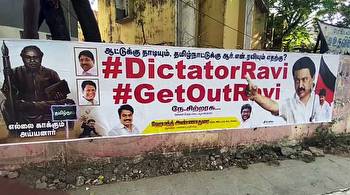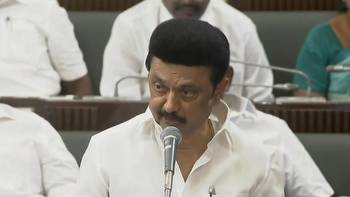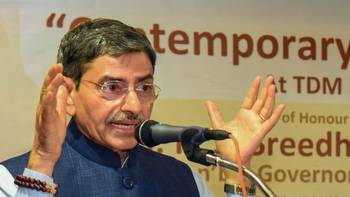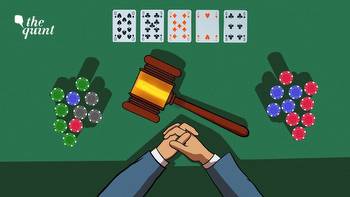TN governor approves ordinance banning online gambling in state

Tamil Nadu governor RN Ravi on Friday gave his assent to an ordinance to ban online gambling and regulate online gaming in the state.
Following his assent, the Tamil Nadu prohibition of online gambling and regulation of online games ordinance, 2022 came into effect.
The prohibitions include online gambling, playing online games of chance (namely Rummy and Poker) with money and other forms of stakes, advertising in any media which directly and indirectly induces a person to play. No banks, financial institutions or payment gateways can engage in transactions.
After the state cabinet approved the draft ordinance, the file was sent to Raj Bhavan on October 1.
The regulations include that local online games providers can provide service only after receiving a registration which will be valid for three years. “The online games provider shall not provide any online gaming service or allow playing of any online game of chance specified in the Schedule with money or other stakes,” the notification reads.
As part of the regulations for non-local online games providers, they are prohibited from providing any online gambling service, those with money and stakes and any online games that go against Tamil Nadu’s regulations.
The All India Gaming Federation urged the Tamil Nadu government to reconsider the ordinance. “The ban can have an adverse effect on the state and will push more and more people towards illegal offshore websites… This is disappointing as it disregards the 6 decades of established legal jurisprudence and also the recent judgment of the Madras HC that struck down a similar law,” Roland Landers, CEO of the federation, said in a statement on Friday.
The penalty noted by the government for a person violating the new rules and for a person advertising is imprisonment which may extend to three months and one year along with a fine of five-thousand and ₹5 lakh respectively. For an online gambling service provider, the punishment is imprisonment which may extend up to three years and a fine amount up to ₹10 lakh.
The ordinance stipulates appointing the Tamil Nadu Gaming Authority of five members. It would comprise a chairperson who has retired not below the rank of chief secretary to the government, a retired high ranking police officer, an expert in the field of information technology, an eminent psychologist, an expert in the field of online gaming.
The authority would have the power and responsibility to regulate online games, issue registration certificates to local online game providers, ask the government to take action as per Information Technology Act, 2000 and more. The authority would have the same powers as vested in a Civil Court (while trying a case under Code of Civil Procedure 1908) to summon a person, receive oral and written evidence and requisitioning records.
This development comes more than a year after the Madras high court struck down (in August 2021) the Tamil Nadu Gaming and Police Laws (Amendment) Act 2021, which banned wagering and betting in cyberspace as ultra vires the Constitution. In effect, the HC overturned the previous AIADMK government’s ban on online games.
The DMK government in last December challenged this in the Supreme Court. After reports of people dying by suicide due to mounting debts while playing online games with high stakes such as rummy, the state government had constituted a committee led by a retired Madras HC judge, K Chandru, to advise on enacting a new legislation on the matter. The Justice Chandru-led five-member team submitted its report on June 27 to chief minister MK Stalin recommending a ban on online games.
The notification states that in a recent government survey 74% of two-lakh school teachers said that concentration of students due to online gaming was impacted. The teachers noticed eye defects, anger, indiscipline and a decrease in intelligent quotient, writing skill, creativity and self-esteem.
The government had called for public opinion and 99% (10,708 out of the 10,735 emails received) wanted a blanket ban. Whereas stakeholders such as the online gaming industry, players associations, activists to go for regulations such as to prevent money laundering, age restrictions.
All India Gaming Federation CEO Landers said: “As the apex industry body for online gaming, we at the All India Gaming Federation have been engaging with the government to understand their concerns and have also made them aware of the proliferation of offshore gambling websites and apps which flourish when constitutionally protected India apps are banned. We had provided various consumer protection and other measures which stop short of an outright ban. In such a scenario this is unfortunate.”


































